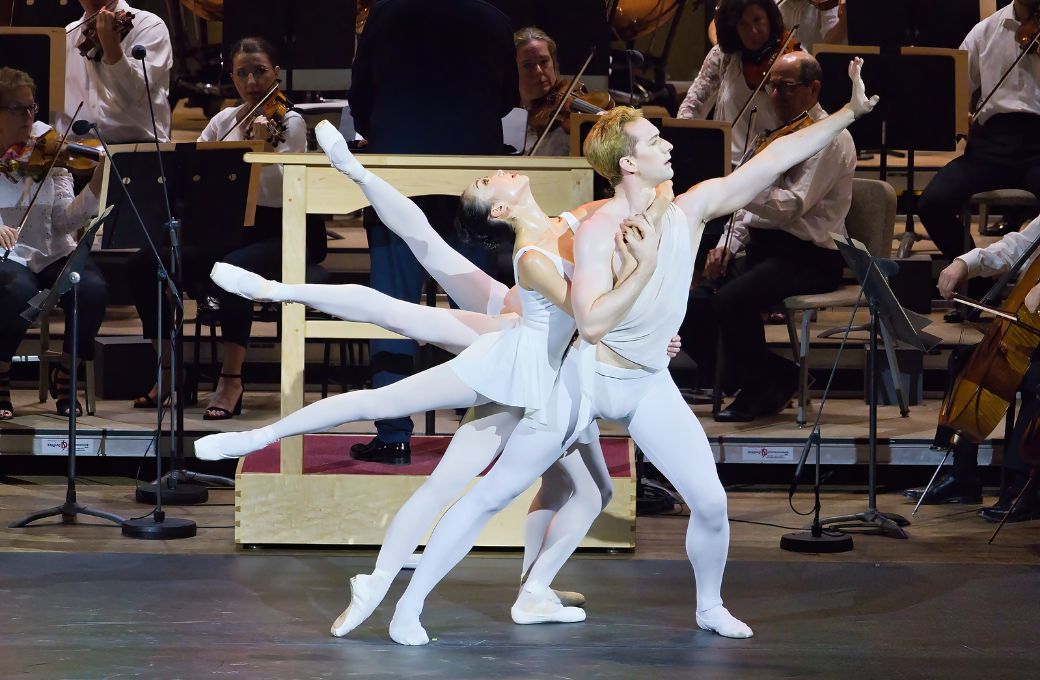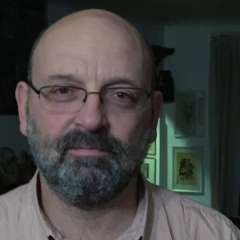Starting the second weekend of the Tanglewood Festival, Friday’s performance was indeed special. After many years of unfruitful searches, the Boston Symphony Orchestra had a new leader, Nathan Cole, only the fourth BSO concertmaster in the last century. He was immediately given the opportunity to shine in Rimsky-Korsakov’s Scheherazade.
His solo moments, representing Scheherazade narrating her captivating tales, were handled with elegance and great dignity, eschewing unnecessary sweetness and effusiveness. Cole’s playing adapted to the evolving character, starting with a gentle, almost submissive tone that intensified in The Tale of the Kalendar Prince as the tempo quickened. By the fourth movement, the solo violin took on an even louder and angrier sound. Towards the work's conclusion, Cole’s voice confidently soared above the orchestra.
The violinist’s approach blended well with Andris Nelsons' vision. Overall, there was a great balance between robust, sculpted blocks of sound and subtle, coloristic details. This interpretation of Scheherazade was not fiery, opulent or brash, but rather calm and rhythmic, adopting the cadences of storytelling. Throughout, there were moments of magic and sensuousness. The principals' solo passages were marked by sensitivity, reflecting Rimsky-Korsakov’s formidable gift for orchestration.
In 1910, choreographer Michel Fokine adapted Scheherazade for Diaghilev’s Ballets Russes. Nearly two decades later, a young George Balanchine choreographed Apollo for the same company. This was actually the second staging – the first one took place in Washington, DC – set to the music originally titled Apollon musagète by Stravinsky. The music is characterised by clarity, harmony and tranquility, in stark contrast to the Dionysian world of Stravinsky’s early compositions – including his masterpieces for Ballets Russes – which were heavily indebted to the teachings of Rimsky-Korsakov.
Conducting a reduced-size string ensemble, Andris Nelsons imbued the mostly tonal music with lightness and elegance, highlighting the unique rhythms anchored by Alexandrine meter, the weaving together of melodies, and the apparently simple textures enriched by using divisi.
Driven by a brilliant idea, that also imparted the evening with a distinctive aura, the festival offered the public the opportunity to see Balanchine’s choreography in all its glory and originality by inviting several members of Boston Ballet to perform on the proscenium. Like Stravinsky in his music, Balanchine sought to distill dance to its essential elements, focusing with an architect’s precision on the movements and interactions of dancers over the importance of sets, costumes and narrative.
From Apollo (Patrick Yochum) playing his lyre with expansive movements of his extended arm, signalling the start of the music, to the god seemingly guiding his chariot of fire drawn by the muses, to the statuesque groupings that connect Apollo and the muses’ bodies, thus emphasising the fusion of the arts, the novelty of Balanchine’s approach was vividly showcased by the Boston Ballet dancers.

Nevertheless, just as Stravinsky’s music retains traces of 19th-century expressive patterns, so too does Balanchine's idiom. Examples include segments where the three muses associated with dance, music, and poetry – Terpsichore (Ji Young Chae), Polyhymnia (Chisako Oga), and Calliope (Kaitlyn Casey) – individually dance with gifts symbolising their arts, bestowed by Apollo earlier.
There was another memorable moment during Friday night’s performance. After Chad Smith, President and CEO of the Boston Symphony, paid homage to Joyce Linde, a beloved patron who had recently passed away, Nelsons conducted the orchestra in a heartfelt rendition of Saint-Saëns’ Swan. Among the cellos in the second row was a familiar silhouette that quietly left after the final notes – Yo-Yo Ma.


